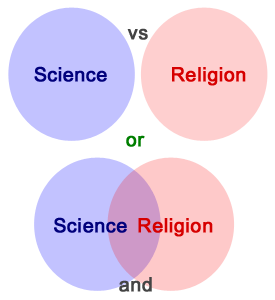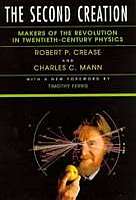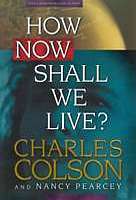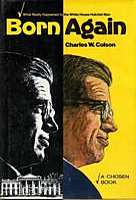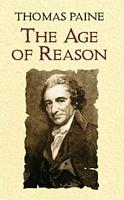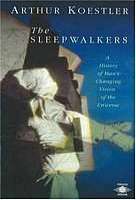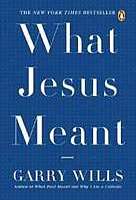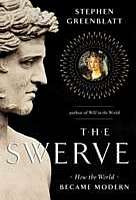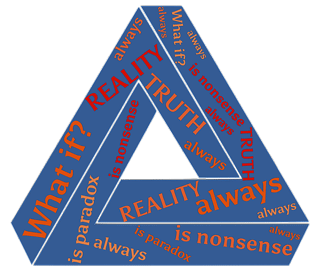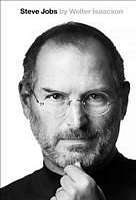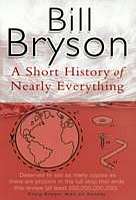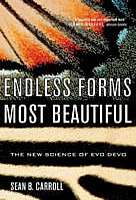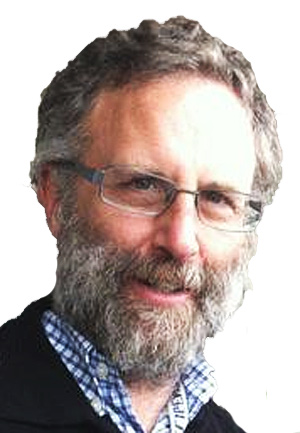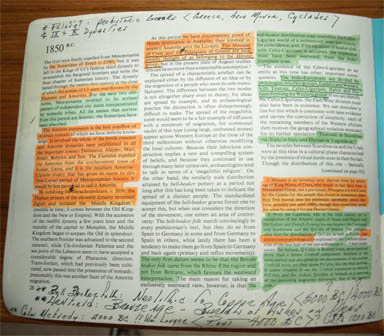 -ologies
-ologies
Can religion and science be reconciled?
"Adherents of religion and science too often want to own the unknown"
Victor Stenger, a physicist who has written extensively about religion and science, asserts emphatically that science and religion cannot be reconciled, and at best merely coexist in parallel thought universes. His primary argument is that faith requires no evidence and science does. Alfred North Whitehead, in his essay Religion and Science, emphasizes the commonality of change in both science and religion, and that both are more plastic than the controversialists from either camp would acknowledge. Is Stenger one of those controversialists? Can religion and science be reconciled?
Humbled again by particle physics
This is a history of the development of the Standard Model of particle physics, circa 1986. It is well regarded by physicists for its sociological treatment, as well as its attempt to record the false starts and uncertainty that accompany leading edge science; certainly the personalities and their various collaborations and squabbles are vividly rendered. As to the science, it is particularly good in providing a pithy description of how a unified theory of electromagnetic, strong and weak forces gives rise to our description of the early events of the Big Bang theory.
The ghost of Schaeffer past
By the time Charles Colson got out of prison in the mid-70's, having been convicted for acts of political skullduggery during the Watergate scandal, he had converted to Evangelical Christianity. How Now Shall We Live was his best-seller, an homage to Francis Schaeffer's view of Western history. Schaeffer was a presuppositional millennialist who in the 1970's left the quiet life of a Christian intellectual to help lead the evangelicals to the heights of political activism we see today in the U.S.
Simple thoughts on religion
Just because you believe something to be true doesn't mean it is true.
Conversely, just because something cannot be proven doesn't mean it isn't true.
Hearts and minds
During his years as a Republican political operative, Charles Colson prominently displayed an old Marine Corp saying in his home: 'When you’ve got ’em by the balls, their hearts and minds will follow.' Colson described those years and the hard crash that followed in his book Born Again as a mid-life autobiography precipitated by a mid-life crisis. After his role as a self-described 'hatchet man' for Nixon White House was slowly exposed during the Watergate scandal, he converted to Evangelical Christianity, and after being convicted of obstruction of justice, he spent some time in prison.
Moving inexorably to the Kindle
After my family gave me a Kindle a while back, I was skeptical of its ability to fully replace a bound book, but after some experimentation, I found the Kindle e-reading device more useful than expected, yet remained a fan of the book-in-hand. By the time I had read through the devices of my Kindle perhaps fifteen books and after a certain amount of experimentation, I gradually became enamored enough of the Kindle to make it my primary mode for reading books. What was the tipping point? And why still prefer a bound book on occasion?
The superweed and GMO crops
Superweeds are weeds that cannot be killed with the usual pesticides used by by today's agro-businesses, such as Roundup. They have begun to pop up in fields that grow crops which have been genetically modified (GMO) to increase their resistance to pesticides. This allows farmers to use Roundup more liberally to kill weeds. This approach worked very well at first, but after a prolonged overexposure of the weed population to Roundup, weed species resistant to Roundup have been selected. This is a serious agricultural problem, as these weeds lower the yield, increase the cost of harvest, and remain a problem that is not easily solved. Why is this strategy employed, when agronomists predicted that such an outcome was inevitable? Why not just move to organic farming, eliminating the use of chemical pesticides, which like antibiotics, are indiscriminate in destroying both pests and beneficial organisms?
What to believe?
Confusion is the only rational outcome of the questions raised by religion. How can one be certain that God exists or certain that God does not exist, or if God exists, what form God takes? To insist that any religion has the unequivocal answers to these questions is to be blinded by the fear of uncertainty and the fear of death. That is not to say that the religious impulse is a false one. What is the purpose of life? How do we live a good life, a meaningful life, a fulfilled life?Zeno’s Paradox? Not so much

Family.
The first time I heard the tale of Zeno's paradox was in childhood, one night after dinner, with the family still around the table. My father grabbed a random section of the day's newspaper, called for a pencil, and with occasional cramped diagrams in the margins of the newspaper, intense and intent, showed us something that fascinated. Such moments with my father, which were relatively rare, I still treasure. His telling of Zeno's paradox inspired me these years later to attack the subject more vigorously.
The Bible Tells Me So, continued (3)
A reader commented on my second post regarding the Bible and homosexuality:Do I make [GLBT people] feel unloved? Well if you are a sincere Christian, then no, setting out intentionally to make them feel unloved is not an option. As you note, love is a key goal in Jesus teaching, whether one believes that homosexual sex is sinful or not.
This is a loving response. It probably wouldn't need to be mentioned, were there not so many who profess to be Christians who are openly and markedly unloving in their response to that community. Yet the kind of charity the reader goes on to describe is limited. See my response in defense of a more supportive view.The Bible Tells Me So, continued
A reader responded to my article The Bible Tells Me So, a short discussion of Matthew Vine's recent video about the Bible and homosexuality, arguing that Vine's interpretation was incorrect, and that Jesus proscribed homosexuality. See my defense of a more loving interpretation.
The Bible tells me so
Matthew Vines, a young gay Christian, has made a serious argument that the Bible favors loving relationships for people of all sexual orientations, not just heterosexuals.
Nothing is something
"Diddly squat is as close to squat as makes no nevermind." (page 124)
 This is a superb and far-ranging essay on the apparently mundane zero. While it might be expected to be predominantly mathematical, it is much more, an erudite and masterly exposition that touches many disciplines without slighting its mathematical roots. It has an exponential arc.
This is a superb and far-ranging essay on the apparently mundane zero. While it might be expected to be predominantly mathematical, it is much more, an erudite and masterly exposition that touches many disciplines without slighting its mathematical roots. It has an exponential arc.Reasoning with Thomas Paine
Thomas Paine was perhaps the most persuasive of those proponents of revolution in the American Colonies of Great Britain, and well after his influential pamphlet Common Sense he continued to write about 'revolting' things (tongue well in cheek) in the following period of the French Revolution. His pamphlet Age of Reason is a fiercely argued defense of freedom of religion, an argument against organized religion and an argument for deism, written between 1794 and 1797 from Revolutionary France.
Sleepwalking amid new ideas
Arthur Koestler's book Sleepwalkers: A History of Man's Changing Vision of the Universe is an ambitious attempt to describe the development of Western cosmology and astronomy from the Greeks to Newton, with particular focus on Copernicus, Brahe, Kepler, and Galileo. Koestler did not see science as a linear and unbroken line of rational progression; instead he viewed the course of the history of ideas as somnambulant: Many ideas were stumbled upon by men with goals and mindsets alien to the very ideas they uncovered.
Jesus, simply
Garry Wills, who is a believing Catholic, attempts to extricate the Jesus of the New Testament from the 1,700 year edifice of organized Christianity by doing his own translation of the koiné, or marketplace Greek ,in which the New Testament was originally written.
Is religious tolerance religious freedom?
 The ensuing religious fragmentation of Western Christendom following the advent of the Reformation created fissures in the fabric of European society so large that, after a century of warfare, borne by the exhaustion of bitter hatred and its accompanying destructiveness, the only option left for a more peaceful existence was the grudging co-existence of groups with religious differences.
The ensuing religious fragmentation of Western Christendom following the advent of the Reformation created fissures in the fabric of European society so large that, after a century of warfare, borne by the exhaustion of bitter hatred and its accompanying destructiveness, the only option left for a more peaceful existence was the grudging co-existence of groups with religious differences. Swerving into modernity
Stephen Greenblatt's book The Swerve: How the World Became Modern is an excellent tale of the influence of Epicurus on the modern way of thinking. Epicurus spoke of change in terms of a 'swerve'; the author's allusion to a swerve otherwise is to the narrow and chance survival during the Renaissance of Lucretius' poem De Rerum Natura, a rumination and celebration of all things Epicurean, and whose influence in subsequent Western thought represents a giant swerve in cosmology, religion and natural philosophy away from Plato and Aristotle and towards Epicurus.
Absolute truth is a tough nut
Paul Abramson, an old friend, wrote a Defense of Creationism, or more specifically, a defense of Young Creationism, which posits that the universe was created around 6,000 years ago, based on a literal interpretation of the book of Genesis in the Old Testament. I read this article out of curiosity for Paul's take on it; Paul is the editor of a website dedicated to Young Creationism. In the endless churn over biological evolution, religious opponents often emphasize blind faith in an absolute view, while scientific advocates emphasize the skeptical application of the scientific method to mold necessarily incomplete theories. The Defense of Creationism is a good example of the former.The Genius of Apple
Steve Jobs recent demise brought out many encomiums having at least one thing in common: An agreement that he was a genius. Jobs' genius (a notoriously fickle word) would appear to be in the realm of practical design. His early Apple computer was easier to use and more accessible to its consumers than those of his early competitors, and that was true of most of the subsequent devices produced by Apple on his watch, including the Macintosh windowing and mouse-driven operating system, the seductively simple iPod, the iPhone marriage of mobile phones with a personal digital assistant and its deft employment of touch screen technology, and the iPad tablet offshoot.
The Internet Filter – thanks, TED
Today, through the most typical Internet feeds, you see highly filtered content, often unbeknownst to you. For those who rely on the Internet more and more for news, opinions, and various other information, as I do, this has the solopsistic effect of virtual navel-gazing, and perhaps as insidious, when you ask the self-same question as another person, each of you often see very different things! Eli Pariser, in a recent TED talk, points out that major Internet sites like Google, Facebook, Amazon, the Huffington Post, the Washington Post, to name a few, are performing more and more algorithmic filtering of what you see to tailor the results to your perceived liking.
What is science? Maybe not what you think it is . . .
"[Science is] an effective, rational instrument for discerning (tentatively, partially, but always more accurately) the facts of the world."
- Chet Raymo, Skeptics and True Believers, p. 166Taking fundamental science personally
Bryson has produced a brilliant exposition on fundamental science that is highly accessible and engrossing for any good reader. The author covers many topics of physics and astrophysics, including the origins of the universe, nuclear physics, and the origins and geological development of the earth.
Wandering Mennonites
The Blue Mountains of China is compelling and candid historical novel that tells the story of a set of Mennonite immigrations from the Ukraine SSR to Siberia, Canada, Paraguay, and briefly, China. The novel begins with a series of loosely connected chapters which move forward in time, and focus on i
Cartesian dualism is driving me crazy
Cartesian dualism came up tonight while Cindy and I were talking, and I didn't understand it well enough to explain it, as is the norm with things philosophical.
So I chanced upon another three minute discussion of that very topic, a funny and clever and . . . short take on Descartes' thoughts about the mind and the body.
Descartes made easy
Philosophy is best consumed in three minutes or less, preferably in cartoon form. This is a hilarious and reasonably accurate take on Cartesian philosophy.
Plants talk, too!
As bacteria have been found to be chattering away with each other, it probably doesn't come as a surprise that plants talk, too. Stefano Mancuso, the founder of plant neurobiology (really!), studies plant signaling and communications.
It turns out that plants signal each other in several ways which help them to find nutrients, procreate and defend against predators. Ain't biology wondererful?
Once again, thank you, TED.
Parascience: Fair – or not
In the very first sentence (above) of this collection of essays, who's full title is Absence of Mind: The Dispelling of Inwardness from the Modern Myth of Self, Marilynne Robinson fires an immediate broadside as she sails the still uncharted territory of consciousness, or perhaps, the territory of charting consciousness. The title 'Absence of mind' appears at least a double entendre: The removal of the mystery of the mind by sloppy, imprecise parascience (a word Robinson uses more in the sense of scientism) and a poke at those who would arrogantly misuse the authority of science as being absent of mind.
Evo devo: where a little means a lot
Sean Carroll's overview of the new science of evolutionary developmental biology, or 'Evo Devo.', Endless Forms Most Beautiful, demonstrates new ways of testing Haeckel's old and discarded idea that 'ontogony begets phylogeny'. Evo Devo is bearing serious fruit; it would appear that a small number of genetic changes can produce very large, and species specific, changes, particularly those mutations occurring during an organism’s development or to the gene regulatory mechanisms of that organism; this is strong new support for the theory of evolution.
Thanks to my favorite professor, Dr. Kenneth Krane
I recently stumbled across the path of my favorite professor from my college years, Dr. Kenneth Krane, after lo these many years; he was describing his approach to writing Physics textbooks. I was happy to discover that he has been given awards for teaching excellence, and has written textbooks of his own. In particular, he was invited by the authors of the best general physics textbook, Halliday and Resnick, to co-author their extended version of General Physics so as to include those topics of modern physics that he taught me so long ago; this version is also held in high regard.Hope against hope: Immortality and illusion
Shortly after my father-in-law Burt died, Christopher Hitchens, the contrarian and atheist, announced that he had been diagnosed with an incurable disease. There was a good deal of response in the media , much of it around the idea that Hitchens subscribed to no hopeful or immortal view of his afterlife. Many asked: should one pray for him, given that he did not believe in any religion? Should he go against his life-long atheism and embrace the "life-enhancing illusion" of the soul's immortality before he dies?Philosophy and wine, or modern critical theory for the (inebriated) million
In which, my brother Craig provides me with an introduction to deconstruction, by way of formalism, structuralism, and semiotics, while sharing several bottles of good wine. Derrida never made more sense.Mother Teresa’s advice
Many years ago, my wife gave me a copy of some simple advice Mother Teresa had written regarding how to live well. I love the sentiments, although I find them personally very challenging to follow on a daily basis; I don't always live up to them, but I keep them visible as gentle reminders of how to be a good human being. An example:
"People are often unreasonable, illogical, and self-centered; Forgive them anyway.
haiku
Star glows in the void,
pin point in the firmament:
quintessential!Burt Ferguson Remembered: words, words, words
My father-in-law Burt died recently, and before he died, Burt and I spent many hours talking about language, history and philosophy, his great passions. Burt spent more time reading than any other of his pastimes. He was a serious reader, meaning both that he read carefully, and that he read very little fiction or humor, but focused on more sober subjects. One of the most powerful and recurring memories that his children have of him is Burt sitting in his den, reading and taking notes. This habit continued into his last days; Burt spent much of his retirement hours in his den engrossed in reading about his favorite subjects.


 READING
READING ARCHIVES
ARCHIVES CATEGORIES
CATEGORIES QUOTES
QUOTES